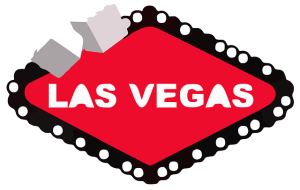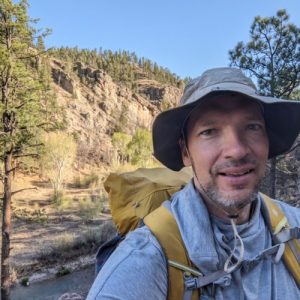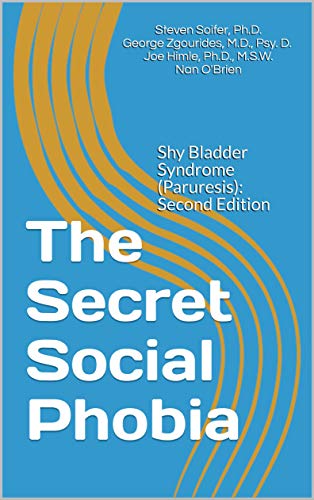Peeing in the Sin Bin
 There I was, standing there, staring down the abyss of a white porcelain bowl, watching, waiting, hoping, praying for something to happen, only to be confronted with the second hand of time marching inexorably forward. Defeated, I zip up and leave the restroom, rejoining the party holding court at the large table in the corner. Except I’m not really there as my mind has drifted elsewhere, ruminating over an opportune time to excuse myself again and have another go at emptying my bursting bladder.
There I was, standing there, staring down the abyss of a white porcelain bowl, watching, waiting, hoping, praying for something to happen, only to be confronted with the second hand of time marching inexorably forward. Defeated, I zip up and leave the restroom, rejoining the party holding court at the large table in the corner. Except I’m not really there as my mind has drifted elsewhere, ruminating over an opportune time to excuse myself again and have another go at emptying my bursting bladder.
If this fictitious scenario sounds familiar, then you too, might be afflicted with Paruresis, better known as Shy Bladder Syndrome. I should know, as I have suffered from Paruresis for over thirty years. Though it has not stopped me from being the person I wish to be, I cannot deny that Paruresis has left an indelible impact. Whenever I encounter an unfamiliar milieu, be it near or far, I constantly fret over where and when I can pee. It’s a sensation we’re all too familiar with.
In early November, I travelled to America’s Sin Bin to attend a workshop designed to combat the stigma of Paruresis. The workshop was led by Dr. Steven Sofier, an acclaimed psychologist who like us, once suffered from Paruresis, and has since devoted his life to championing our cause and developing effective treatments. I was one of seven attendees. We came from all over the American West, Canada included. Though I would love to say I was the handsomest guy there, the only thing I can confirm with certainty was that I was the youngest.
Treatment for Paruresis is based on a concept known as “gradual exposure therapy”. In layman’s terms, this is the slow acclimation to stimuli considered fearful. As this relates to Paruresis, gradual exposure attempts to resolve the phobia by slowly immersing sufferers in more challenging bathroom environments. The ultimate goal is to become comfortable voiding in close proximity to others.
To test this theory, for two days we binged on bottled water and practiced peeing in a variety of environments. Las Vegas is riddled with challenging scenarios, as there is no escaping the constant hustle and bustle of people. If you can ace peeing at a urinal in a packed casino restroom, there’s a good chance you can transcend paruresis.
I would love to tell you that I’m cured, but the truth of the matter is I didn’t make much progress, at least not when compared with other participants. But that’s okay. I am out there, open and public about my condition and committed to doing something about it. I feel no embarrassment or shame. It is what it is. What I took away from this workshop is that recovery is a long and arduous journey, but that things can and will get better – provided I continue putting the work in. That’s a commitment we all have to make, and it means putting forth conscientious effort each and every day.
I don’t know if I will ever see these men again. I certainly hope that I do, as we had a blast bonding over our shared experiences and working together to better ourselves. But even if I don’t, I take solace in knowing that I am not alone, that there are others out there grappling with identical issues, and that I have their love and support.
Eric, Carson City, NV – November 2023
QUICK LINKS
INTERNATIONAL PARURESIS ASSOCIATION
P.O. Box 21237
Catonsville, MD 21228
You Are Not Alone.
There Is Help For You!
Shy Bladder, Bashful Bladder, Pee Shy
IPA OFFICE HOURS
Monday - Friday
10:00am - 6:00pm (ET)
844-I-CANT-PEE (422-6873)
US/Canada
443-315-5250 Office
Email: getinfo@paruresis.org
This website is NOT a substitute for medical or legal advice and does not constitute the practice of law, medicine, psychiatry, clinical psychology, clinical social work, or any other mental health profession. If you are having trouble urinating, you should always contact a physician since difficulty with voiding can be a symptom of a serious medical condition. We are a group of professional people and people who have suffered with paruresis. We have assembled a board and a board of advisors to help people cope with urinary dysfunction that has a psychological or social origin. On this website, we are NOT practicing medicine, psychiatry, clinical psychology, clinical social work or any other mental health profession. You should have your doctor evaluate your condition before diagnosing yourself, and seek the appropriate necessary mental health counseling if warranted. IPA, Inc. disclaims any and all legal liability whatsoever.




